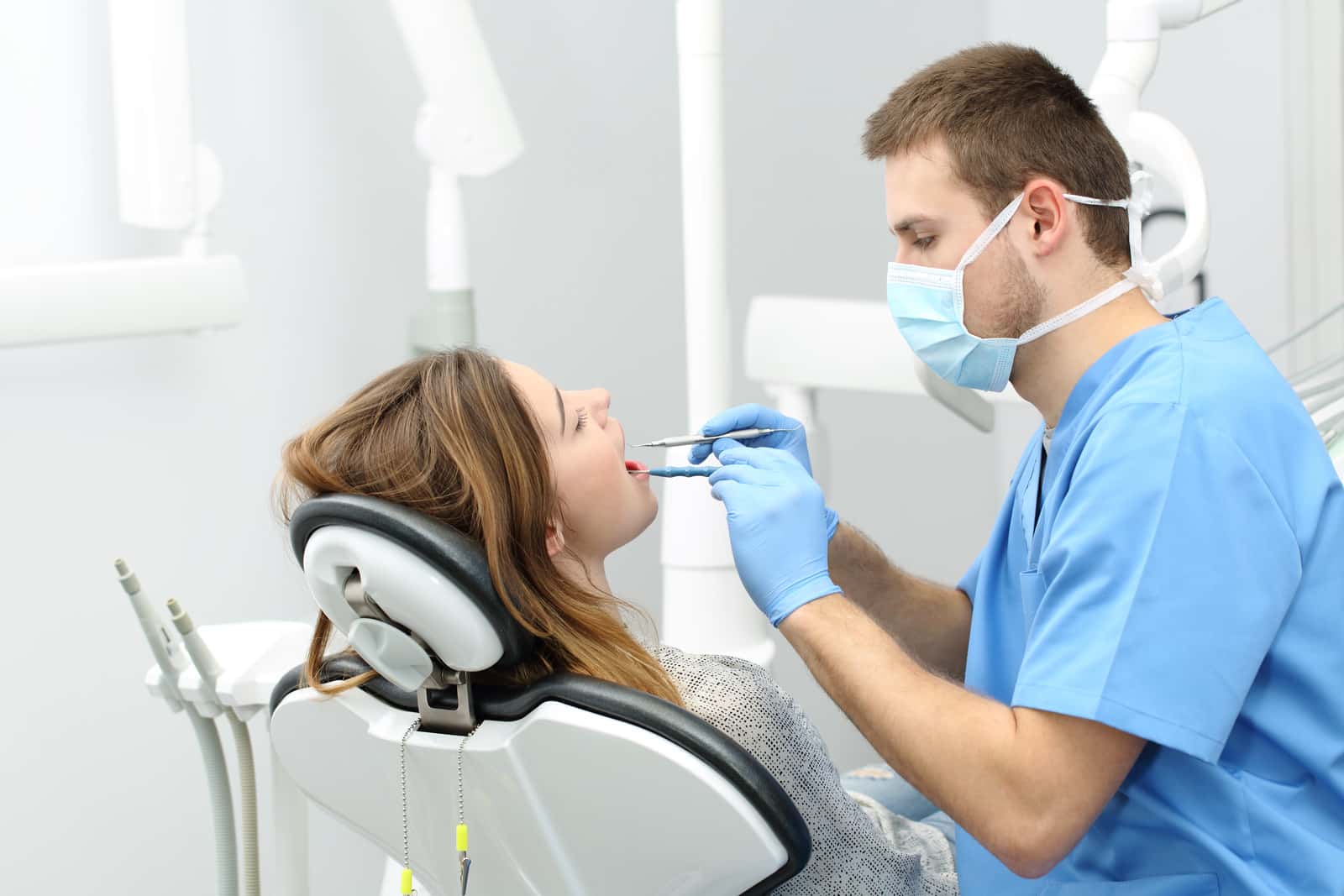Why You Need To Pick a Neighborhood Dentist Eugene for Personalized Treatment
Why You Need To Pick a Neighborhood Dentist Eugene for Personalized Treatment
Blog Article
A Guide to Usual Oral Problems That Need a Dentist's Care
Toothaches, for example, can be symptomatic of severe problems such as tooth cavities, fractured teeth, or abscesses, each needing particular interventions like dental fillings or origin canals. Affected knowledge teeth and jaw disorders can present considerable pain and complications.
Toothaches
Toothaches are a typical dental condition that can range from moderate discomfort to serious discomfort, often indicating a hidden issue that needs expert interest. This pain can originate from a selection of sources, including tooth decays, broken or fractured teeth, and oral abscesses. Each of these problems postures considerable risks if left neglected, potentially resulting in a lot more serious complications.
Oral tooth cavities, additionally recognized as caries, are triggered by the buildup of plaque that wears down tooth enamel, leading to holes or pits in the impacted teeth. Abscesses are excruciating infections at the origin of a tooth or in between the gum tissue and a tooth, typically resulting from serious decay or untreated dental caries.
Reliable therapy of toothaches includes resolving the source. This may include dental fillings for tooth cavities, crowns for cracked teeth, or root canals and prescription antibiotics for abscesses. Very early intervention by a dental professional can prevent additional degeneration and alleviate pain, making sure optimal dental health and wellness.
Gum Condition
Gum tissue disease, a common yet frequently ignored dental problem, materializes with swelling and infection of the periodontals and supporting cells. This condition mainly takes place in two stages: gingivitis and periodontitis. Gingivitis, the milder form, offers with signs such as red, swollen periodontals that might bleed easily during cleaning or flossing. If left without treatment, gingivitis can proceed to periodontitis, a more serious kind identified by the destruction of the sustaining bone and connective cells, inevitably leading to tooth loss.
The primary root cause of gum tissue disease is bacterial plaque, a sticky, colorless movie that continuously bases on teeth. Poor oral hygiene, smoking cigarettes, hereditary predisposition, and particular clinical problems, such as diabetic issues, can worsen the danger of creating gum tissue illness. Routine dental check-ups are essential for early discovery and monitoring of this condition.
Treatment for gum illness varies from professional oral cleansing and scaling to advanced treatments like origin planing and periodontal surgical treatment, relying on the extent. Maintaining good oral hygiene techniques, including brushing two times daily, flossing, and making use of an antiseptic mouthwash, can significantly lower the risk of periodontal illness and advertise healthier gum tissues.
Cavities
Dental caries, likewise known as dental caries, are an usual oral problem characterized by the destruction of tooth enamel due to acid-producing microorganisms in the mouth. These bacteria flourish on sugars and starches from food and beverages, producing acids that gradually wear down the enamel, causing dental caries development.
Early-stage dental caries might not show signs and symptoms, but as they proceed, they can cause tooth pain, level of sensitivity to hot or cool, visible holes or pits in the teeth, and discoloration. If left neglected, dental caries can penetrate much deeper layers of the tooth, possibly leading to serious pain, infection, and also missing teeth.
Stopping tooth cavities entails a mix of excellent oral hygiene practices and dietary routines. Routine cleaning with fluoride toothpaste, flossing, and regular dental exams are important. Dental practitioners might likewise advise extra precautionary steps, such as fluoride treatments and oral sealants, to safeguard teeth from degeneration.
Small cavities can be attended to with dental fillings, which bring back the tooth's structure. Extra innovative cases may need crowns or even root canal treatment if the degeneration has gotten to the tooth's pulp.

Impacted Wisdom Teeth
Affected wisdom teeth are a prevalent Read Full Report oral problem that occurs when the 3rd molars, frequently referred to as wisdom teeth, stop working to fully arise or align appropriately within the mouth. This condition frequently results from not enough area in the jaw or an abnormal development angle of the teeth. Influenced wisdom teeth can lead to a range of complications, consisting of discomfort, damage, and infection to adjacent teeth.
When wisdom teeth come to be impacted, they are often partly emerged or continue to be entirely underneath the gum tissue line. This partial eruption can create a pathway for germs to get in the gum tissues, causing infections that manifest as swelling, pain, and also fever. Additionally, impacted knowledge teeth can exert stress on bordering teeth, potentially causing crowding or moving.
A detailed oral examination, commonly involving X-rays, is necessary for diagnosing impacted knowledge teeth. Therapy commonly involves medical extraction, performed by a dental doctor. The procedure intends to alleviate discomfort and avoid more difficulties, such as cysts or damage to surrounding bone frameworks. Post-operative treatment is essential to make certain proper healing and decrease the risk of infection. Routine oral exams are a good idea to keep an eye on the condition and preserve oral health.
Jaw Disorders
Jaw disorders, collectively known as temporomandibular joint (TMJ) disorders, encompass a series of problems discover here that influence the jaw joint and surrounding muscles. These conditions can materialize via signs and symptoms such as pain or tenderness in the jaw, difficulty chewing, a popping or clicking sound when closing the mouth or opening up, and even persistent headaches. TMJ disorders can develop from different aspects, including joint inflammation, jaw injury, or habitual habits like teeth grinding or jaw clenching.
Medical diagnosis of TMJ disorders commonly includes a detailed analysis by a dentist, consisting of a physical examination of the jaw, oral X-rays, and sometimes advanced imaging methods like MRI or CT scans to examine the joint's condition. Treatment choices differ relying on the intensity of the condition. Non-invasive techniques such as physical therapy, dental splints, and drugs focused on decreasing inflammation and discomfort are usually first-line treatments. In extra extreme cases, medical treatments might be required to remedy structural problems within the joint.
Early treatment by an oral expert is crucial to stop the development of TMJ problems and to maintain total oral wellness. Individuals experiencing consistent jaw pain or dysfunction must look for timely evaluation and therapy.
Verdict
Toothaches typically show underlying problems such as dental caries, broken teeth, or abscesses, calling for timely treatment. Influenced wisdom teeth and jaw problems additionally call for expert article source interest to minimize discomfort and protect against additional difficulties.
Oral tooth cavities, also known as decays, are caused by the build-up of plaque that deteriorates tooth enamel, leading to openings or pits in the influenced teeth. Abscesses are unpleasant infections at the origin of a tooth or in between the gum and a tooth, typically resulting from extreme degeneration or neglected tooth cavities.

In addition, impacted wisdom teeth can apply pressure on surrounding teeth, possibly creating crowding or moving.
Report this page